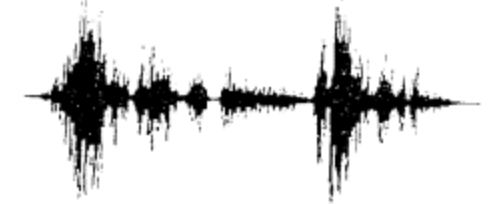Registrability of Sound Trade Marks in Kenya: A Lost Opportunity
- caroletheuri |
- December 17, 2013 |
- CIPIT Insights,
- Trademark

Having recently taken some interest in the world of motorcycles with close family members being proud owners, this blogger came across the case by Harley Davidson who in 1994 applied for a trademark over their distinctive rev sound. Harley Davidson claimed that Harleys have a distinctive design and exhaust note and the distinctive sound of the Harley-Davidson motorcycle engine is produced by V-twin, common crankpin motorcycle engines when in use. Harley Davidson competitors opposed the trademark application, arguing that cruiser-style motorcycles of various brands use a single-crankpin V-twin engine which produce a similar sound. These objections were followed by unsuccessful litigation by Harley Davidson and in 2000 Harley Davidson dropped efforts to register the sound of a Harley trademark.
This blogger while noting that the issue arose over a decade ago found this case to be still relevant when traversing through the murky waters of the non traditional sense marks i.e sound and smell/olfactory trade marks. Generally a sound mark is a non conventional trade mark, where sound is used to perform the function of uniquely identifying the commercial origin of products or services. Dealing with only sound marks this blogger notes the increasing number of sounds which have through use become associated with products where users recognise jingles or melodic slogans or start up tunes of phones and computers and immediately associate them with particular goods or services essentially gaining the characteristics of a trademark.
The Trademarks Act (Cap 506) of Kenya describes a mark as a distinguishing guise, slogan, device, brand, heading, label, ticket, name, signature, word, letter or numeral or any combination thereof whether rendered in two-dimensional or three-dimensional form.
Despite the fact that sound marks do not feature in the wording of the act, one can argue for protection of the same in the event the applicant seeking to register the trade mark is able to be render the mark in two dimensional form. The European Court of Justice Shield Mark Case (C-283/01) found that musical notations or wording were sufficient to meet the trade mark registration requirement if the mark in question fulfilled the one other basic registerbility requirements such as those found in Kenyan law e.g
• The name of a company , individual or firm , represented in a special or particular manner
• The signature of the applicant for registration or some predecessor in his business
• An invented word or invented words;
• A word or words having no direct reference to the character or quality of the goods, and not being according to its ordinary signification a geographical name or a surname.
• Any other distinctive mark.
Noting that not all sound marks are musical and therefore cannot be rendered into a two dimensional form, the Office of Harmonization for the Internal Market (OHIM) and United states Patent and Trademarks office Register(USPTO) requires that registration of the sound marks is accompanied by a digital recording, this clearing up any confusion in the translation of the musical annotation of the mark.
The keen motorcycle enthusiast may not agree with Harley Davidson competitors in the case sited in the beginning of this post and hail that the Harley sound is distinctive to the Harley Davidson engine. From this bloggers view the sound of a motorcycle revving its engine seems to stretching the bounds of sound marks and got her thinking about what interesting sound marks exist in Kenya that to a certain extent could gain trade mark protection
The first that comes to mind is from our very own mobile giant Safaricom with its ” Mteja wa nambari uliyopiga hapatikani kwa sasa” directly translated from Kiswahili to “the person that you are trying to reach is not available at the moment” any Kenyan who hears the kiswahili phrase would immediately associate it with Safaricom to the extent that it has crossed over into urban slang with the words “Mteja” directly translated as person, now means not available. While this blogger accepts that the slogan is purely descriptive and allowing the sound mark on the register would limit the use of the phrase by other mobile service providers, it would be interesting debate for our courts to have if Safaricom tried to register the mark, stating that the statement has become distinctive through use, an example of a similarly registered sound mark is found in the United states Patent and Trademarks office Register (USPTO) would be that of American Online (AOL) you’ve got mail sound mark which was played when users opened their “virtual mail box” read email client. Interestingly enough, in a quick survey of ISP “Mteja” messages, they are all distinctively different, without Safaricom, to this bloggers knowledge having registered the message as a trademark.
Another that comes to mind is Nation News jingle (which this blogger was not able to find a link to) played at the beginning of the news broadcasts which has crossed over and even become a notable ringtone, which if one hears will immediately associate it with the nation media groups station. In this instance you are likely to find, that by its nature a jingle is afforded copyright protection, though this blogger notes it would be at the very least an interesting exercise in trying to register it as a trademark.
